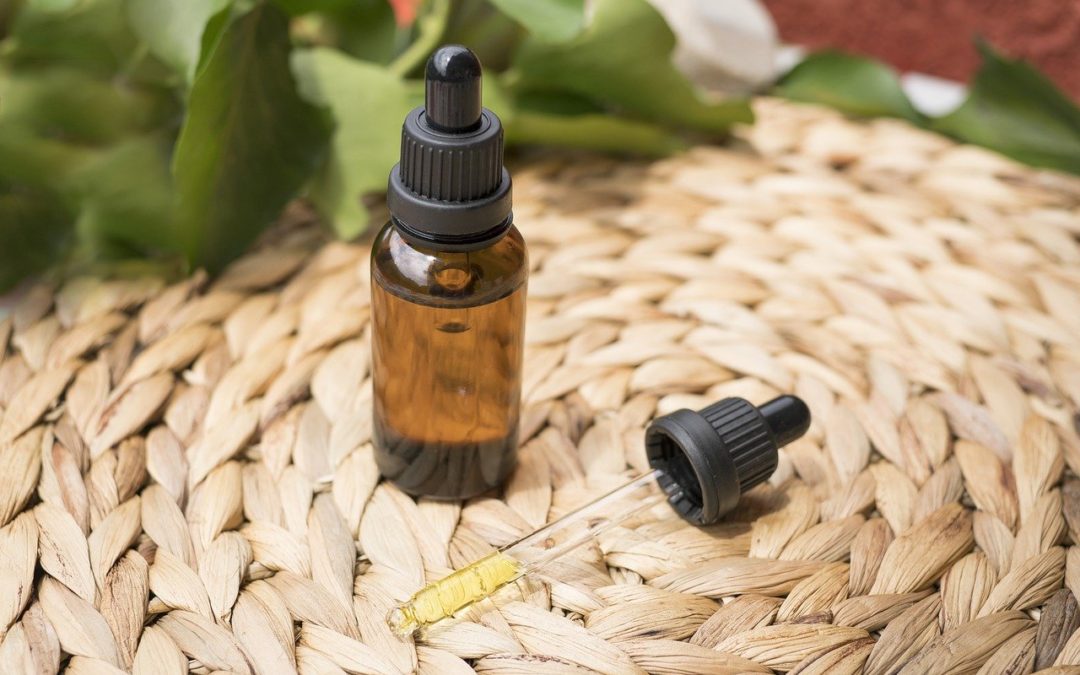Cannabis oil is a general term used to describe any liquid containing cannabinoids, which are types of medicine derived from the Cannabis Sativa plant. When someone refers to cannabis oil, they could be talking about a number of different products, ranging from tinctures to topical body oils to cannabis concentrates that can be inhaled or “dabbed.” Even though these products may all be labeled as “cannabis oil,” they all have vastly different compositions and cannot be considered interchangeable. If used in the wrong way, these substances can easily lead to long-term damage to one’s health, and in certain cases even death. Keep reading to learn more about some of the most common types of cannabis oils and why you may want to avoid many of these products altogether.
What Is CBD Oil?
There is an abundance of so-called “cannabis oils” being marketed as beauty and wellness miracles, but sadly many of these products — namely CBD oil — are largely ineffective and often don’t contain any cannabis-derived medicines at all. Cannabidiol, more commonly known as CBD has become extremely popular in the last few years as the non-psychoactive cannabinoid found in marijuana, but there is little evidence to suggest that it is at all beneficial for the average person.
Although CBD has shown promise as a treatment for Dravet Syndrome and Lennox-Gastaut Syndrome, which are two rare epileptic disorders found in children, there is not enough definitive data showing its efficacy in treating pain, insomnia, anxiety, or any of the ailments manufacturers have led the public to believe it can help or even completely cure. While it is true that cannabidiol does not lead to a “high” in the same way that THC, or tetrahydrocannabinol does, this certainly does not mean it’s harmless. Those who take CBD may experience side effects like nausea, vomiting, drowsiness, and fatigue. Since CBD is broken down by the liver, it may also interact with many common prescription medications which could lead to severe complications requiring medical attention.
There is also very little oversight or regulation when it comes to health and beauty supplements like CBD oil, meaning that manufacturers can exaggerate the effects of these products and even deliberately use misleading language on their labels. Unsurprisingly, many of these products contain less than half of the amount of CBD advertised, if any at all, yet they still remain on the shelves at expensive health and wellness shops. Ultimately, very few people will benefit from CBD oil or any of the so-called “cannabis-derived” products found at these stores, and yet these products remain on shelves at an exorbitant price point and lack any real warnings about their potential adverse effects.
What Other Types of Cannabis Oils Exist?
When many people talk about cannabis oils they are referring specifically to CBD oil, but there are other cannabis-derived oils that exist on the market, namely tinctures and cannabis concentrates rich in tetrahydrocannabinol, or THC. Unlike cannabidiol, there is evidence showing THC’s powerful effects in relieving a variety of symptoms including pain, insomnia, and nausea, and therefore THC is generally considered to be the real “medicine” found in cannabis.
Products containing THC, including cannabis oils, can be found at medical marijuana dispensaries across the country, and although these products may be far more effective than CBD oils in treating pain and discomfort, it is important to know the differences between these products in order to prevent misuse. Cannabis concentrates, such as distillate oil and butane hash oil, along with cannabis tinctures, could all be described as cannabis oils, but these products are used in dramatically different ways. Whereas cannabis concentrates, which are sometimes referred to as “dabs,” are consumed by inhalation, cannabis tinctures are ingested orally.
Accidentally inhaling a tincture could be a major cause for concern as they are often produced using ethyl alcohol, also known as ethanol. When inhaled, ethanol may lead to a variety of unpleasant symptoms including confusion, vomiting, blurred vision, and in severe cases, unconsciousness and even death. It is crucial that those who use cannabis concentrates or tinctures therapeutically know the differences between these products and understand how to use them. Of course, those considering using THC, CBD, or any type of medicine found in cannabis to help manage their condition should always consider speaking to a trained medical expert who is knowledgeable about using cannabis as medicine and can best direct them towards best practices.
Consult with a Qualified Boston Medical Marijuana Expert Today
Massachusetts medical marijuana doctor Jordan Tishler, M.D. sits on the faculty of Harvard Medical School and has years of experience helping patients treat pain and other ailments using cannabis. He and the team at InhaleMD stand ready to assist patients in determining whether medical marijuana is right for them. For more information, or to set up a virtual consultation with the team at InhaleMD, call us at (617) 477-8886 today.

